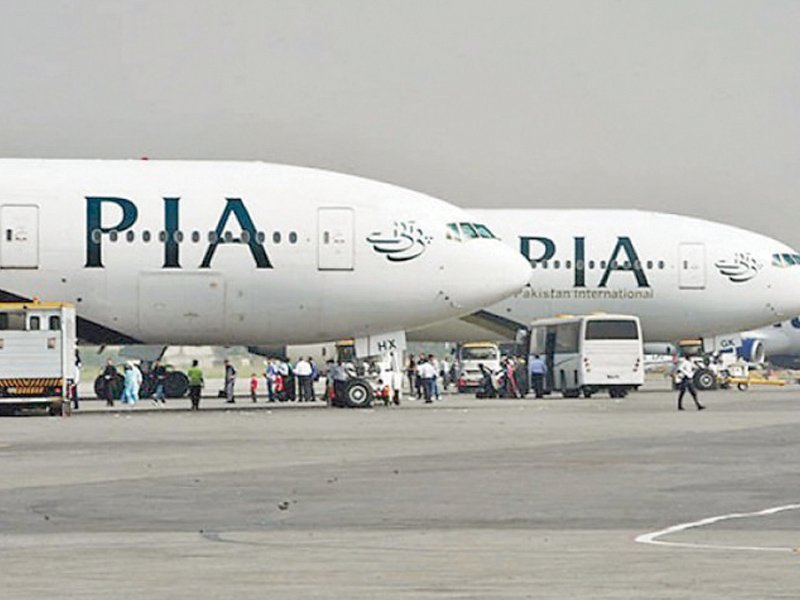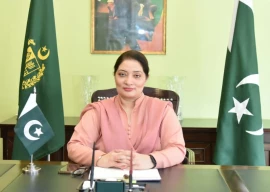
Among the first few things Shujaat Azeem did after taking office of Prime Minister’s special assistant on aviation last month was to issue a statement on the Pakistan International Airlines (PIA), the national carrier that is haemorrhaging billions of rupees each year.
He talked about regaining PIA’s lost glory by tackling corruption, adding aircraft into its fleet and assuring the employees that there won’t be any layoffs. His statement, which was issued by PIA’s PR department, did not mention the national carrier’s proposed privatisation.
Time and again, the government has expressed its commitment to privatising loss-making state enterprises in the past few months. A high-level meeting chaired by the prime minister even decided to hand over PIA’s management to private investors by the end of 2014. The sale is also part of the International Monetary Fund (IMF) loan package.
This is the time when the government should have already started negotiating with union leaders, try to take them into confidence and discuss severance schemes. If the airline is sold, no investor would want to pay around 18,000 employees when the organisation is losing money every day.

On the other hand, airline executives and union leaders have been working hard to cut costs and prove that the airline is on the recovery road. And now, we have a senior government official suggesting he supports the unions.
So what does the government really want?
Aviation industry officials have warned time and again that privatisation alone cannot help PIA. Changes have to be made to liberal policies, which allow Middle East carriers to dump seats in Pakistan. Who will take on the UAE?
The saga in the power sector
Then there is the power sector, which remains the government’s top priority – at least in statements. No one seems to know what policymakers intend to do to solve the crisis on a long-term basis.
The ground-breaking ceremony of Thar coal mining and power project, which was attended by both the premier Nawaz Sharif and former president Asif Ali Zardari is being rightly viewed as a historical step.
However, at the same time, there are numerous power projects, which will be based on imported coal. Just a few days back, Punjab chief minister invited investors to add thousands of megawatts to the national grid using imported coal. At the same time, there are IPPs working to reengineer their oil-run plants to use coal.
Again, what is the priority?
When PML-N was voted into power, businessmen were hoping that it would get down to fixing the economic ills immediately. But that is not happening. Debates in parliament, statements, and news all revolve around political and security issues.
“Yes, economy is not featuring prominently in their statements,” said Sayem Ali, Standard Chartered Bank chief economist. “There is no doubt that security is a major concern but some important steps must to be taken at the economic front as well.”
It is not just the MPs who seem absent-minded about immediate problems faced by the country. Opposition legislators are lacking interest in economic matters as well.
“There is absolutely no clarity on how the privatisation process will go ahead,” Ali said. “No one is asking why do you want to privatise? There is no evidence to suggest that organisational losses will come down and these enterprises will become efficient.”
Even more disturbing is the fact that the government is not paying any attention to key regulatory bodies.
The State Bank of Pakistan, National Electric Power Regulatory Authority and Oil and Gas Regulatory Authority all seem to be operating under ad-hoc arrangements.
Dwindling foreign exchange reserves, which have battered the currency rate, has become a serious headache for the economy. The events of the past few months should have pushed policymakers to go out of their way in boosting exports. Yet, nothing has happened.
The much talked about GSP Plus status, which allows Pakistani exports to enter the EU freely, will not bear fruit unless some things are done urgently, industrialists say.
Published in The Express Tribune, February 3rd, 2014.
Like Business on Facebook, follow @TribuneBiz on Twitter to stay informed and join in the conversation.
COMMENTS (4)
Comments are moderated and generally will be posted if they are on-topic and not abusive.
For more information, please see our Comments FAQ

















@Parvez: You are absolutely right. This is what Ghauhar Ayub said in his book as FM in NS's Govt.
Nawaz Sharif's problem is that he himself is incapable of doing the right thing........so he entrusts others with this task and therein lies his mistake.
Privatization is the only panacea to stop hemorrhage of state run institutions which are full of non-competent employees installed by political parties. Yes, new employer will try to weed out non-performing employees and has prerogative to do so. Whether management and union agrees with it or is not a choice any more. After all both of them are responsible in which state run institutions are today. Party is over!